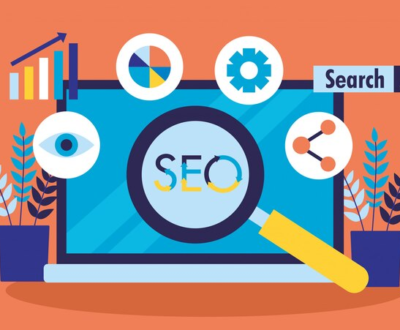Is SEO Dead? How AI Is Changing Search
- October 25, 2024
- SEO
This article examines the transformation of search due to advanced AI systems, the complex algorithms that drive them, essential SEO practices that remain relevant, and the implications of these changes for B2B content marketing.
Key Insights
- The rapid evolution of generative AI is reshaping our understanding of search engine optimization (SEO).
- Traditional SEO strategies are now encountering challenges as AI technology progresses at a pace that can be difficult to track.
- While SEO will not die, it will undergo significant transformations due to advancements in AI and Large Language Models (LLMs).
The rapid adoption of generative AI is reshaping our approach to search engine optimization (SEO). Techniques that once guaranteed online success are now being challenged by the swift progression of artificial intelligence (AI). The era of relying heavily on keyword stuffing and backlink building to gain visibility in search results is behind us. We are entering a phase where LLMs serve as more than just tools; they are redefining our interaction with data.
In this discussion, we will explore how advanced AI systems are changing search dynamics, the complex algorithms behind them, the key SEO practices that continue to hold value, and the implications of these shifts for B2B content marketing.
LLMs as Search Engines
Emerging Large Language Models, including ChatGPT, Gemini, and Perplexity, are becoming formidable competitors to traditional search engines. These models utilize extensive datasets to deliver nuanced, contextually relevant responses, engaging users in conversational, human-like interactions rather than relying solely on keyword indexing. This trend marks a broader shift in information access, positioning LLMs as critical players in developing effective marketing strategies.
Retrieval-Augmented Generation (RAG): This approach merges retrieval and generative AI techniques, allowing LLMs to extract pertinent information from large datasets and deliver more accurate, context-aware responses with current data.
- ChatGPT: Developed by OpenAI, ChatGPT excels in generating human-like text and is effective for tasks such as rephrasing, summarizing, and repurposing content. Its conversational capabilities facilitate interactive dialogues, enabling users to access information and respond to complex queries naturally.
- Gemini: Developed by Google, Gemini is adept at producing SEO-friendly content and offering creative title suggestions. Its ability to generate content aligned with SEO best practices makes it a valuable resource for content creators looking to improve online visibility.
- Perplexity: Perplexity operates as a smart search engine that leverages LLMs to provide highly relevant results. It delivers comprehensive answers to user questions by tapping into a broad range of data sources, showcasing a deep understanding of context and intent.
Many users now prefer straightforward answers rather than navigating through numerous links. As LLMs evolve, they can provide rich, easily digestible responses. This shift may lead to a future where search engines take a backseat, with LLMs taking the lead in information delivery.
Evolution of Search Algorithms
At the foundation of both traditional search engines and LLMs are algorithms that govern how information is indexed and retrieved. Earlier search engines relied heavily on keyword density and link-building tactics. Below is an overview of how search algorithms have advanced and their impact on search relevance and outcomes.
- Google Panda (2011): This update aimed to demote sites featuring low-quality, thin, or duplicate content, enhancing the visibility of websites with high-quality, original material, and improving overall search quality.
- Google Penguin (2012): Focused on penalizing sites employing manipulative link-building tactics, this update rewarded sites with natural, high-quality backlinks while discouraging spammy methods.
- Google Hummingbird (2013): This update enhanced Google’s understanding of the meaning and context behind search queries, enabling the search engine to provide more relevant results, especially for conversational and complex inquiries.
- Google MUM (2021): MUM is a sophisticated AI model that enhances Google’s capacity to comprehend and address intricate queries. It can analyze information across multiple languages and formats, yielding more comprehensive and precise search results.
Recent updates to Google’s algorithms, like RankBrain and BERT, have introduced AI-driven enhancements aimed at improving search relevance. These updates strive to grasp language nuances, allowing for deeper understanding and interpretation of user queries. As AI models continue to evolve, traditional data retrieval methods may soon die out.
SEO Components
SEO is not dead; however, AI is driving a necessary evolution in how SEO will function in the near future. Understanding its fundamental components is crucial for effective online marketing efforts.
Key elements include:
- Keywords: While they remain foundational to SEO, LLMs may lessen their importance by comprehending natural language.
- Content Quality: The significance of high-quality content is paramount as AI increasingly favors rich, meaningful information that delivers user value.
- User Experience: Aspects such as fast-loading pages, mobile optimization, and intuitive navigation are essential for keeping visitors engaged.
- Backlinks: Although their significance may diminish, backlinks still demonstrate authority and importance within niche contexts.
These elements will need reevaluation as AI reshapes user interactions and search behaviors.
AI’s Impact on Search
AI is undeniably reshaping the search landscape. Content marketing is evolving as AI facilitates improved analysis of user behavior, prediction of trends, and personalization of messages. Automated tools now provide real-time insights that influence content strategies. Marketers must adapt by focusing not only on traditional search engines but also on optimizing for AI-driven platforms and understanding how LLMs process queries.
B2B Search Marketing
In B2B marketing, utilizing platforms such as LinkedIn, YouTube, Podcasts, Google, and Pay-Per-Click (PPC) campaigns is vital. These channels provide significant opportunities to connect with target audiences, establish brand authority, and share valuable content.
- LinkedIn: This platform remains the premier choice for B2B engagement. Compelling content, industry insights, and thought leadership articles can help raise awareness and build meaningful relationships with decision-makers and industry peers.
- YouTube: Video content is gaining prominence, especially for complex B2B topics. Tutorials, webinars, and interviews effectively convey messages and build credibility, making YouTube an excellent resource for educating and engaging potential clients.
- Podcasts: Accessible and engaging audio content is a significant driver for organic growth. Incorporating transcripts and dedicated landing pages can enhance SEO ranking, keyword visibility, and link-building opportunities.
- Google: While its traditional search functions remain relevant, understanding AI integration will be key to crafting effective marketing strategies.
- PPC (Pay-Per-Click): This digital advertising model charges advertisers each time their ad is clicked, offering a way to buy visits rather than earning them organically. PPC is commonly employed across various platforms, including search engines and social media networks.
As AI continues to influence content distribution across these platforms, marketers must prioritize delivering quality content that aligns with user queries and provides unique value.
The Future of Search
While some claim that AI could render SEO obsolete, it is more likely that SEO will evolve rather than die. The future of SEO will focus on adapting existing methods to new technologies.
Key changes to anticipate include:
- AI-Generated Content: Content produced entirely by AI poses challenges, such as copyright issues and the potential for decreased traffic and search rankings. Significant human input will be necessary for search engines to acknowledge and reward content effectively.
- Semantic Understanding: Future SEO will shift from a strict focus on keywords to semantic search techniques that prioritize context and user intent.
- Voice Search Optimization: With the increasing prevalence of voice-activated devices, voice search is likely to continue transforming how users seek information, necessitating strategies tailored for spoken queries.
- Data-Driven Decisions: As AI delivers real-time insights into user behavior, the importance of leveraging analytics for informed decision-making will grow.
- User Journey Mapping: Future SEO strategies must consider the entire user journey, ensuring content is targeted at every stage, from awareness to conversion.
Google’s ranking algorithms will keep prioritizing the delivery of the most relevant content to users. LLMs like ChatGPT, Gemini, and Perplexity provide nuanced, contextually relevant responses, which may challenge traditional search engines by fostering more conversational and direct connections.
How to Develop Your New SEO Strategy
- Google: Adapt to Google’s AI integrations to refine your SEO tactics.
- Bing: Investigate Bing’s AI features to maintain a competitive edge in search optimization.
- Emerging Search Engines: Explore the capabilities of new search engines and their AI functionalities.
- Social Media (Podcasts, LinkedIn, YouTube): Utilize these platforms for content distribution and engagement, aligning with their evolving algorithms and user expectations.
SEO will not die, but it will experience considerable changes as a result of advances in AI and LLMs. To thrive in this ever-evolving search landscape, marketers must remain agile and proactive. Embracing these changes and integrating AI insights into SEO strategies are essential for maintaining a competitive advantage.
For businesses looking to enhance their online presence and navigate these changes effectively, Earn SEO, a local SEO company based in New York, specializes in adapting to the evolving landscape of digital marketing. By leveraging the latest AI technologies and proven SEO practices, Earn SEO can help your business thrive in an increasingly competitive environment. Whether you need assistance with content creation, keyword optimization, or comprehensive SEO strategies, their expert team is ready to support your growth and visibility online.
Earn SEO was established in 2011 by Devendra Mishra, a highly educated professional with varied training and experience. Mr. Mishra is responsible for business development, attracting new Earn SEO partners, and interacting with clients, the media and press, and acting as Brand Ambassador.
Devendra Mishra
Founder






































